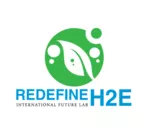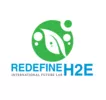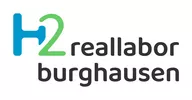Cooperation Projects
Interdisciplinary cooperation in the field of hydrogen and power-to-X
At the Technical University of Munich, various departments and groups are conducting research in the field of hydrogen and power-to-X. Research in the area of core competencies is bundled in the TUM.Hydrogen and PtX network and realized in the form of interdisciplinary projects.
As part of the TUM Hydrogen & PtX network, diverse projects have already been realized.
Currently, two interdisciplinary PtX projects are being carried out, the H2-Reallabor Burghausen and the International Future Lab REDEFINE H2E, which make it possible to draw a bridge between basic research and application.
H2-Reallabor Burghausen – ChemDelta Bavaria

Transformation of the chemical industry in ChemDelta Bavaria towards a sustainable hydrogen-based circular economy
- Determination of material and electricity requirements at the local chemical sites under various future scenarios, presentation of dependencies and integration options and identification of the corresponding generation capacities to cover these requirements.
- Development of new technologies for the production of sustainable basic chemicals and the utilization of residual materials in circular systems.
- Delivering research results for the entire Bavarian Chemical Triangle to reduce the time to industrial maturity of sustainable technologies and accelerate the transformation of the location.
The research activities in the H2-Reallabor Burghausen - ChemDelta Bavaria project are divided into 7 work packages (WP). The TUM sub-project focuses on the work packages WP1, WP2, WP3, WP4, WP6 and WP7.
Energy system considerations - quarter level (LES): Coordination of the industrial data query, development of the quarter model, definition of scenarios, identification of local transformation paths
Energy system considerations - D/EU (ENS): Analysis of Europe-wide demands and potentials, implementation of an energy model for the evaluation of hydrogen production and transportation
Cross-regional GIS-based potential study (LES): Identification of the local and cross-regional potential of sustainable carbon supply for the chemical industry
Life cycle assessments - climate, air and water (RES): Evaluation of current CO2-equivalent values as well as air and water pollutants in the chemical triangle, eco-analysis of selected innovative processes
Innovation and market launch strategy (CSO): Analysis of existing and potential business models, as well as analysis of the regulatory framework
Roadmap for the sustainable transformation process of the chemical industry (LES, ENS, RES, and CSO): Summary of all insights in a transformation strategy (roadmap) for the ChemDelta Bavaria region
Design, construction and commissioning of a modular, flexible PtMeOH test container (LES)
Experimental investigations and development of a dynamic simulation (LES): Completed series of measurements on the start-up and shut-down behavior of the container system and on transient operation, individual component performance curves, coupling with CCU test container
Development and scaling of a digital twin (APT): Simulation of the data model, implementation of the glass plant in augmented reality
Laboratory investigations (synthesis, characterization and kinetics of catalysts) for CO2-based methanol synthesis (TC1): Selection of suitable catalysts and identification of critical material descriptors, kinetic measurements for methanol synthesis from CO2, modification and further development of the plant and catalysts
Investigation of innovative reactor concepts, e.g. adsorptive reactors or membrane reactors (TC1): Reactor model, concept of sorption-assisted methanol synthesis from CO2, indirect methanol synthesis from CO2
Laboratory studies on the further development of PEM electrolyzers (TEC, APT): Integration potential for PEM electrolyzers, commissioning of PEM test stand, permeation rates, recombination catalyst, requirement profiles for PEM electrolyzers, efficiency analysis
Container planning and construction (LES): Engineering and construction of the CCU container, test operation of the CCU container system
Investigation of the process dynamics and development of the control strategy (LES): Commissioning of the carbon capture plant at the Burghausen site, implementation of the control strategy, proof-of-concept of a CCU methanol process chain at the RVA
Fluid dynamic investigations and material compatibility (APT): Selection of suitable amine solution and packing, design of absorption and desorption column, control strategy for columns
Optimization of FHCR process route for yeast oil production using O2 (WSSB): Provision of high-sugar straw hydrolysate, simulative optimization of the FHCR process matrix, oil yeast fermentation in 50-80 kg
- Green acetic acid production for biogenic cycle (BAT): Functional membrane reactor on a laboratory scale, process for O2-reduced production of biogenic CO2 from yeast oil production, proof of process stability
Processing yeast oil into SAF (TC2): Functional reaction systems on a laboratory scale, development of solid catalysts with tests according to industry standards, development of two-phase catalysts, transmission of kinetic data, testing of at least two catalysts with yeast oil
Simulative investigation of the bio-chemical synthesis for the production of SAFs (biorefinery), simulative upscaling and techno-economics (TC1, TC2, WSSB, BVT, LES): Modeling of yeast oil production, acetic acid production and SAF production from yeast oil; creation of the upscaled overall AirFuels process; techno-economic evaluation of the upscaled AirFuels process
Simulative process comparison, techno-economic evaluation and scenario analysis (LES): Site-dependent techno-economic evaluation of the upscaled Fischer-Tropsch Power-(-and-Biomass)-to-Liquid process, techno-economic evaluation of the upscaled Power-to-Methanol-to-Jet process, comparison of the three simulated process routes
Simulative comparison of (thermo-)chemical recycling processes and techno-economic analysis (LES): Completion of first status of process simulations and techno-economic analysis
Design, construction, commissioning of plasma-based waste-to-X test container plant for syngas supply (LES, RES): Completion of 3D model of the WtX container plant, commissioning of WtX container plant
Experimental studies on pyrolysis/plasma gasification and resource recovery (LES, RES): Tests for HT pyrolysis and plasma gasification stage and for integrated process chain
Development of lifetime-optimized plasma technology with innovative electrode cooling concepts (LES): Construction and testing of the plasma torch
Simulative evaluation of possible process variants for sewage sludge incineration with Carbon Capture and Usage (LES): Testing of sewage sludge incineration (KSV) plant concepts and preselection for simulation, completion of techno-economic analysis of KSV concepts
Simulation of suitable variants for alternative thermochemical sewage sludge utilization for material use at the Gendorf Chemical Park (LES)
Catalytic production of bio-based polymers (PET alternative) from bioresidue (CBR, EBT): Provision of all necessary enzymes, creation of development plans for electrosynthesis, adaptation of individual enzymes, optimization of the electrode interface for transfer, hydrogen integration process concept
Development and scaling of Reverion and subsequent extensive demonstration operation (LES, Reverion GmbH): Determination of a grid-beneficial schedule for the investigated system concept, characterization of SOFC stacks in reversible operation and evaluation of their use in the system concept, development of a methodology for predictive fault detection
Type: Collaborative project: H2 Reallabor Burghausen – ChemDelta Bavaria
Funding: German Federal Ministry of Education and Research (BMBF)
Funding code: 03SF0705B
Runtime: 01.04.2023 - 31.03.2027
TUM Partner: Chair of Energy Systems (LES), Chair for Strategy and Organization (CSO), Chair of Renewable and Sustainable Energy Systems (ENS), Professorship of Regenerative Energy Systems (RES), Chair of Technical Chemistry I (TC1), Chair of Technical Chemistry II (TC2), Chair of Technical Electrochemistry (TEC), Chair of Plant and Process Technology (APT), Chair of Biochemical Engineering (BVT), Werner Siemens-Chair of Synthetic Biotechnology (WSSB), Chair of Chemistry of Biogenic Resources (CBR), Professorship for Electrobiotechnology (EBT)
Network Partner: Bauhaus Luftfahrt e.V.
Partner: Rosenheim Technical University of Applied Sciences (TH-Ro), Ostbayerische Technische Hochschule Regensburg (OTHR), Forschungsstelle für Energiewirtschaft e.V. (FfE), many industrial partners from the region (Bavarian Chemical Triangle), see website
Website: H2-Reallabor - Reallabor Burghausen
Projektrahmen: Verbundvorhaben: H2 Reallabor Burghausen – ChemDelta Bavaria
Förderung: Bundesministerium für Bildung und Forschung (BMBF)
Förderkennzeichen: 03SF0705B
Laufzeit: 01.04.2023 - 31.03.2027

Renewable Electricity Dispatch and Expendable
Feedstock-Integrated Net-Zero-Emission Hydrogen Economy
Production of green hydrogen using reversible high-temperature electrolysis (rSOC) and innovative gasification (e-Gas), up to the bio-catalytic synthesis of basic chemicals and energy carriers (bio-Cat), framed by elaborate system-level aspects investigation (SLAM)
The REDEFINE H2E concept enables the provision of green hydrogen from biogenic waste materials, as well as the generation of large quantities of pure hydrogen from excess renewable electricity. Moreover, REDEFINE H2E allows the generation of electricity from hydrogen and biogenic residues whilst renewable electricity is scarce. On top, the synthesis of basic chemicals and energy carriers based on green hydrogen and biogenic CO2 can be carried out independently of the power supply.
Type: Collaborative project: International Future Lab REDEFINE H2E
Funding: German Federal Ministry of Education and Research (BMBF)
Funding code: 01DD21005
Runtime: 01.12.2021 - 30.11.2024
TUM Partner: Chair of Energy Systems (LES), Chair of Chemistry of Biogenic Resources (CBR)
International Partner: IEN (Poland), LEI (Lithuania), LTU (Sweden), UQ (Australia)
Website: REDEFINE H2E

